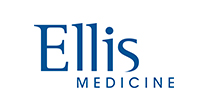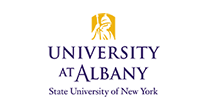News
December 16, 2015New UAlbany Program Aims to Meet Demand for High-Tech Instrumentation Expertise in Biomedical Research
The University at Albany will offer a new degree program in bio-instrumentation, designed to address the demand for advanced instrumentation technology specialists in today’s growing biomedical and biological research industry.
To facilitate enrollment in the program, the University and Hudson Valley Community College have signed an articulation agreement to allow all required and elective curriculum credits earned at Hudson Valley to transfer to the University’s four-year bio-instrumentation program. Hudson Valley graduates with an A.S. in biology or biotechnology will be on track for acceptance into the program.
The collaboration was made possible by a $1 million New York State Economic Development Council award to Martin Tenniswood, principal investigator and director of the University’s Cancer Research Center, to purchase equipment and renovate classroom and lab space.
The program, a bachelor’s degree in interdisciplinary studies with a concentration in bio-instrumentation, will be housed at the University’s School of Public Health on the growing East Campus in Rensselaer. It will enroll students in the fall 2016 semester under the direction of John A. Tine, director of the Center for Functional Genomics’ Molecular Biology Facility at the Cancer Research Center.
The new degree, earned through the University’s School of Public Health, bolsters the University’s efforts to develop its East Campus into a health sciences research and education center, a key strategic initiative of the school’s largest academic expansion since the construction of the Uptown Campus. Deeper biomedical sciences research activity will drive economic development and workforce creation in the region, and pave more paths for UAlbany’s public engagement initiatives.
Led by Laura Schweitzer, the University’s vice president for health sciences and biomedical initiatives, the East Campus will become a hub for expanded academic offerings in the health sciences as well as research affiliations with institutions such as Downstate Medical Center, Albany Medical College, the Albany College of Pharmacy and Health Sciences, and the New York State Department of Health.
“With the last several decades of advances in technology providing for complex layers in biomedical and biological sciences research, even creating new fields such as genomics and proteomics (the study of proteins), the rapid evolution of the scientific instruments that facilitate these studies has placed this advanced research within the reach of most laboratories. What’s needed is trained and skilled scientists to operate these instruments,” said Tenniswood.
The bachelor’s degree in interdisciplinary studies and bio-instrumentation will provide students with a unique educational focus and intensive training as well as a solid background in public health, biology, and biotechnology.
The collaboration between UAlbany and Hudson Valley highlights the university system’s core values outlined by SUNY Chancellor Nancy Zimpher, which encourages multiple levels of cooperation among SUNY campuses. The bioinstrumentation program partnership with Hudson Valley provides a wider range of academic offerings for students of both institutions. At Hudson Valley, another option for students is created in the form of a new transfer pathway that complements their existing programs and enhance their ability to recruit new students into their biology and biotechnology degree programs.
Completion of the degree will provide graduates with a competitive advantage as they pursue careers in laboratory research, either by immediate entry into the workforce or through further graduate study in the biomedical or biological sciences.
























